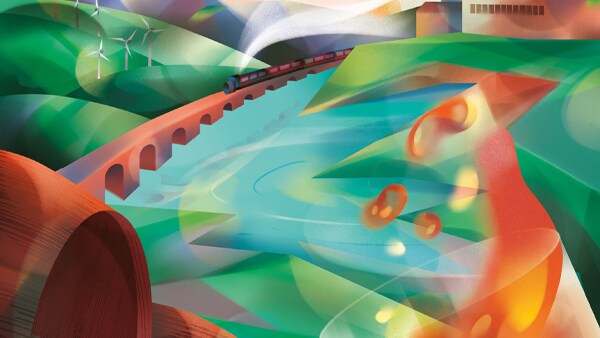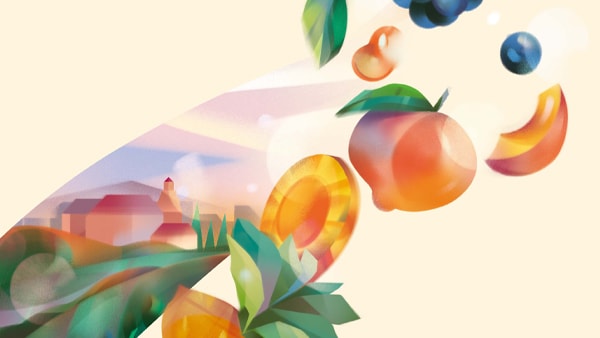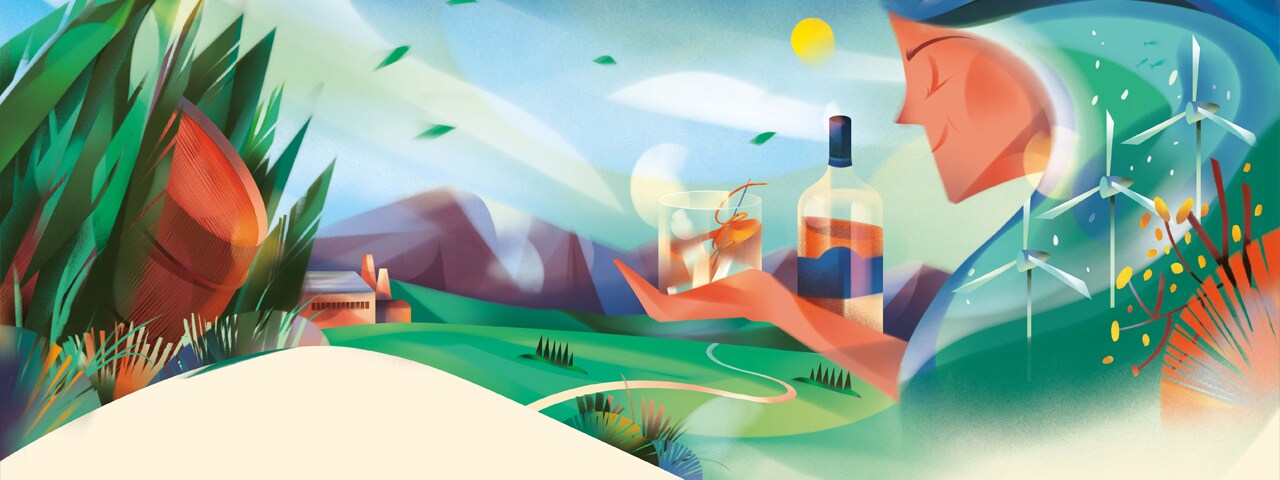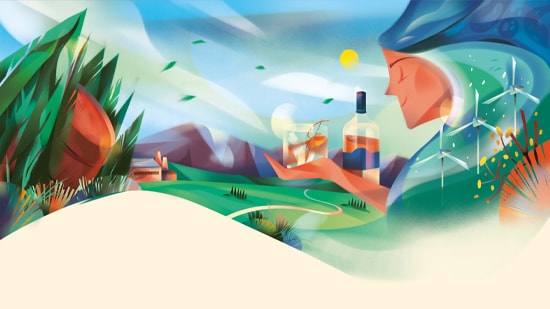Mavericks of malt
From underwater sea turbines to state-of-the art distilleries, Scottish whisky makers are finding novel ways to fire up their malts.
Just as Champagne is the result of its celebrated terroir, Scotch is the embodiment of Scotland's heather-covered hills, serene lochs and misty moorland. From Highlands to Lowlands, celebrated whisky-producing areas such as Islay, Speyside and Jura each offer a different perspective on the delectable, amber-coloured nectar handcrafted in time-honoured traditions and made with just three ingredients – water, barley and yeast.
It all sounds beautifully simple, but the natural resources required for its distilling process make this an energy-intensive business. According to a report published by the British government, the production of whisky directly led to around 530,000 tonnes of CO2 equivalent in 2018, with the majority of these emissions coming from the generation of heat for the distillation process. This accounts for more than 80% of the distillation industry's fuel consumption – almost all of which is currently from fossil fuels.
Now, this 500-year-old industry is tackling the issue head-on with a range of new planet-friendly initiatives. New technologies, including geothermal energy, biomass, wind, solar and hydrogen power, and a fresh approach to construction are indeed a far cry from the old ways. For instance, when it opens in 2024, Ardgowan's new distillery and visitors centre just west of Glasgow will have low-environmental-impact composite cladding, timber and steel materials that will create a light-filled modern Nordic long hall.
A NEW ENERGY
A pioneering new hydrogen-powered project is planned to sit between the isles of Islay and Jura in Scotland's Inner Hebrides. The revolutionary 3MW 'Oran na Mara' project is the brainchild of Edinburgh-based Nova Innovation, a world-leading tidal energy company, which has also partnered with Tesla in the past. Still in the project development stage, it plans to install a series of underwater turbines between Islay and Jura. This will create clean, renewable power generated by the tide that will displace fossil fuels and power local whisky distilleries.
Meanwhile, Bunnahabhain has already paved the way for change with the installation of a new biomass energy centre powered entirely by forest biomass and spent malt known as draff, which is a byproduct of distillation. The new £6.Sm Biomass Energy Centre is expected to save 3,500 tonnes of carbon per year, making the whisky maker the first on Islay to have a net-zero emissions distillation process. Angus Colquhoun, Engineering and Risk Manager at Distell, owners of Bunnahabhain, explains: "The system should integrate into our production processes with little impact. We are confident that we will see a smooth transition to renewable energy."
And then there is Glasgow-based Whyte & Mackay and their four single malt distilleries, including The Dalmore and Jura. In summer 2022, they started work on their first Bio Energy Centre in lnvergordon. Once complete, the centre will allow the generation of sustainable energy using byproducts from the whisky process such as spent-grain, draff and pot ale, while the resulting green biomethane gas will be used to power operations. Furthermore, the new plant will enable its Dalmore distillery to be 100% carbon-neutral by the end of 2023.


OVER A BARREL
As the popularity of whisky continues to grow, especially among a younger generation of savvy spirit drinkers, distilleries will need more wood for their casks. The industry currently imports casks, most commonly ex-bourbon barrels from the USA and European fortified wine casks from Portugal and Spain. However, Whyte & Mackay thinks it has found a solution from closer to home thanks to its sustainable Scottish Oak Programme.
"Fortunately, we are in rural Scotland and so we have local forestry partners on estates right next door to our distilleries. The Scottish Oak Programme was a natural evolution in the sustainable wood conversation," says Kieran Healey-Ryder, a member of Whyte & Mackay's sustainability team and Head of Whisky Discovery.
"The programme is also about building partnerships with the local community and bringing skills back and, perhaps most importantly of all, creating new unique dimensions of flavour in our Scotch," he adds, pointing to its first Scottish Oak part-finished expression suitably named 'King of Trees'.
Launched in 2019 under its experimental whisky arm, Whisky Works, the 10-year-old blended Highland malt was created using wood from two 200-year-old wind-felled Scottish Oak trees to make one cask. The initiative began at Fettercairn in Aberdeenshire, 'the garden of Scotland', where they are trialling these 100 per cent Scottish oak casks – with surprisingly good results – and the whisky maker completed inducting each of their distilleries (four malt and one grain) into the programme in May 2022.
"We trialled it after six months of maturing in the cask and were blown away by what we tasted. In just that short amount of time, it was already bursting with intense flavour characteristics, which is really exciting," Healey-Ryder adds.
Speaking of knockout flavours, The Macallan's new Harmony Collection Fine Cacao packs a subtle punch. In creating this single malt, The Macallan's head whisky maker, Polly Logan, embarked on a journey to Girona in Spain to learn more about the chocolate-making process and its unique flavour profiles. Once back at The Macallan HQ, she sought out a specific chocolate note in its traditional sherry-seasoned oak casks and combined it with a vanilla note imparted by American oak casks, also sherry-seasoned, to sweeten the bitterness of the chocolate. The new release is also the first limited-edition whisky to be presented in a beautiful, fully recyclable and biodegradable box, made using natural byproducts in the chocolate-making process.
THE MORE THINGS CHANGE...
Not all change is technical and, in an industry dominated through the centuries by men, it's refreshing to find female distillers calling the shots. Along with Logan and Lisa Matthews at Ardgowan, Annabel Thomas, founder of the independent organic whisky distillery, Nc'Nean, is also making quite a splash.
The former Bain & Company manager launched her organic Scotch brand in 2017 and her first whisky emerged three years later. "A lot of the myths around flavours such as 'you must only drink Scotch neat' came about in the 1980s and are no longer helpful," says Thomas. Her top tip would be to make a long drink of one part whisky to two parts soda, poured over plenty of ice. Apparently, the small amount of salt in the soda brings out a more intense flavour of the Scotch.
She is also fully committed to creating biodegradable, sustainable packaging. For instance, the cork used in its stoppers is sustainable and completely compostable, while the beautifully illustrated bottles are made from 100 percent post-consumer recycled glass – a first for the spirits industry.
Innovation can also be seen in the development of natural ingredients, most notably yeast. "We recently experimented with a rum yeast that was originally developed to be used by rum distilleries and it produced wonderful pineapple aromas in our spirit," says Thomas. "Plums and blackberries from a red wine yeast also surprised us. It will be some time until any of these experiments make it into a bottle, but we're keeping a close eye on their development.”
Picture credit: Illustration by Jia-yi Liu

 From underwater sea turbines to state-of-the art distilleries, Scottish whisky makers are finding novel ways to fire up their malts.
From underwater sea turbines to state-of-the art distilleries, Scottish whisky makers are finding novel ways to fire up their malts.

